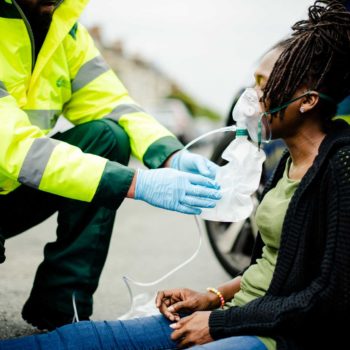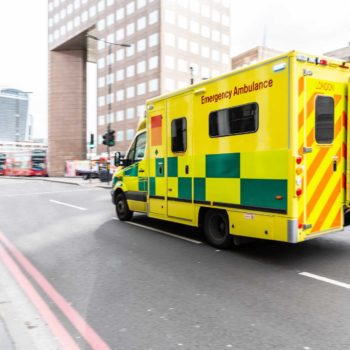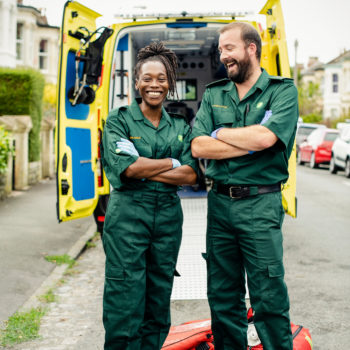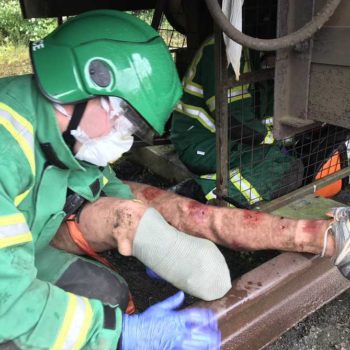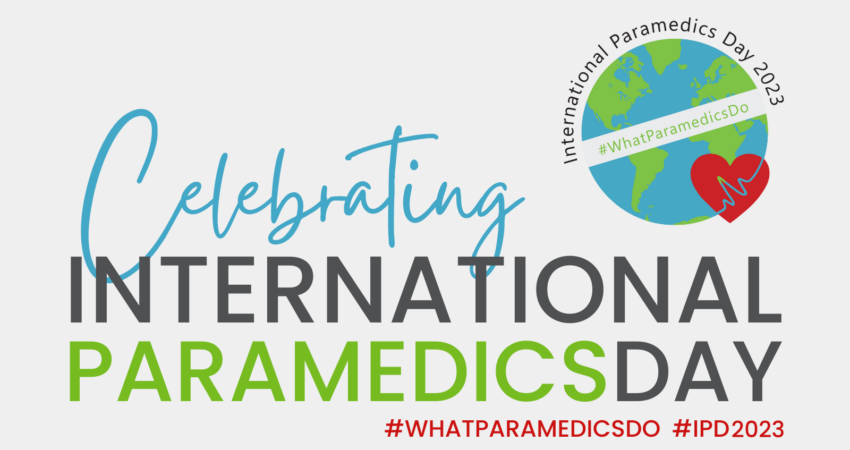
Becoming a Paramedic – Beginning steps and tips
There are various routes to becoming a Paramedic which we cover in one of our other articles: Different routes to becoming a Paramedic, but here we will look at some of the beginning steps you can take to start the journey and aim to give you the best chance of getting on the first rung of the ladder. Whether you are just leaving school or college, are looking to change career paths, or just want something new, we feel the steps and tips here will help give you an idea of how to get off on the best foot:
Qualifications:
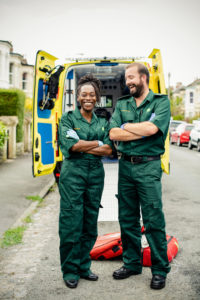 The Paramedic role has developed significantly since its’ inception from an ‘Ambulance Driver’. A Paramedic now is expected to make complex medical decisions autonomously, whilst maintaining knowledge on a wide range of medical and traumatic conditions, medications, policies, and a whole host of other subjects. As such, the role has developed so that it is more academically recognised. Paramedic Science in University is now a 3-year degree course, with many postgraduate options and masters degrees that can be followed on later to specialise.
The Paramedic role has developed significantly since its’ inception from an ‘Ambulance Driver’. A Paramedic now is expected to make complex medical decisions autonomously, whilst maintaining knowledge on a wide range of medical and traumatic conditions, medications, policies, and a whole host of other subjects. As such, the role has developed so that it is more academically recognised. Paramedic Science in University is now a 3-year degree course, with many postgraduate options and masters degrees that can be followed on later to specialise.
Often to get into University or Ambulance Services, you will have to have a minimum level of qualifications. These will vary depending on the University or organisation. Taking the University route for example, a typical A-Level requirement may require 2 B’s and a C. If one of these subjects is in a science, especially Biology, then this may act in your favour as you can demonstrate a good ground level of knowledge within human anatomy and physiology. Some Universities used to require Biology as a core subject, it’s always important to check which requirements they have.
If you haven’t got the required educational qualifications for your chosen route, it is always worth discussing with the University or organisation to see what other aspects may allow you to qualify, such as previous employment roles and life experiences.
If these don’t help meet the criteria, then you will have to look at returning to education to gain the necessary qualifications. There are many Colleges which offer access courses to health roles, and a host of other qualifications. As always, if in doubt, discuss with the University or organisation as to what they suggest so you don’t apply your time in the wrong course or subject.
Experiences:
 Having good life experiences, ideally some which involve the medical and pre-hospital fields, can give you a great insight into the Paramedic role and what is expected. It will also help you stand out from the crowd when going through the interview and selection processes. Various Universities and organisations use different interviewing and assessment processes when deciding candidates. If you have the same qualifications as many other candidates, discussing that you are a Community First Responder (CFR) volunteer or you work for in a health care role, such as a carer or hospital Health Care Assistant, could help you stand out from the crowd.
Having good life experiences, ideally some which involve the medical and pre-hospital fields, can give you a great insight into the Paramedic role and what is expected. It will also help you stand out from the crowd when going through the interview and selection processes. Various Universities and organisations use different interviewing and assessment processes when deciding candidates. If you have the same qualifications as many other candidates, discussing that you are a Community First Responder (CFR) volunteer or you work for in a health care role, such as a carer or hospital Health Care Assistant, could help you stand out from the crowd.
This will also help with an important part of the selection process where competency based questions are often used. Competency based questions help reveal skills, knowledge, and experiences an individual can bring to a role. If you are able to discuss experiences where you dealt with a difficult situation, remained calm in a stressful environment, worked as part of a team when you had a difficult task, and so on, through your lived experiences, you will be able to better answer these questions and show how your past experiences can be transferred to the new role.
The role of a Paramedic can be stressful, difficult, and challenging. If you previously had worked as a combat medic within a military setting and can recall experiences where you had to treat a colleague while under fire, this will help manage the employer or University’s expectations that you will suit what is required in the role. If you have no notable experiences and cannot give an example, then this will make it difficult for them to judge your suitability for the role. This doesn’t mean that young or inexperienced individuals cannot apply as many students post secondary school or college successfully attain University places. What can help is covered in our next tip:
Extra work/volunteering:
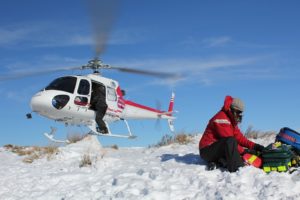 Doing extra work or volunteering in a health care or pre-hospital setting will help you get the additional experience and insight that can show prospective Universities or employers your suitability for the role. By showing that it’s in addition to your work or you are volunteering in your spare time, this will demonstrate your commitment to achieving the role and that you are willing to put in the extra work.
Doing extra work or volunteering in a health care or pre-hospital setting will help you get the additional experience and insight that can show prospective Universities or employers your suitability for the role. By showing that it’s in addition to your work or you are volunteering in your spare time, this will demonstrate your commitment to achieving the role and that you are willing to put in the extra work.
There are many volunteering positions within Ambulance Services and the NHS which will help significantly with developing extra experience, such as Community First Responders (CFR’s) or volunteer patient transport. The CFR role in particular can be helpful as it essentially gives you first hand experience working as a responder in the pre-hospital environment.
CFR groups are numerous within Ambulance Services and communities. CFR’s are individuals who volunteer their time to attend certain medical emergencies within their community. They are put through basic medical training, and then can respond to certain calls in their area with medical kit provided to them by the Ambulance Service. Each group will often have a main Ambulance Service trainer and point of contact for any queries. They will often hold regular training events to keep volunteers up to date and confident with their skills.
As discussed, there is a huge number of things you can do to add experience. By volunteering or doing extra work, this will again help you stand out from the crowd and offer a good idea of your suitability within the Paramedic role.
Attending Ambulance Service and University events
 Many Ambulance Services and Universities will hold open days throughout the year, encouraging new people to explore the Ambulance or Paramedic role, and give them the opportunity to talk with staff and lecturers about what is required and what to expect. At some events, they’ll even have seminars you can attend to learn about the job and life within pre-hospital care. Being present at these events gives you a good opportunity to ask questions about the application process, and ask what you can do to better succeed in the selection process.
Many Ambulance Services and Universities will hold open days throughout the year, encouraging new people to explore the Ambulance or Paramedic role, and give them the opportunity to talk with staff and lecturers about what is required and what to expect. At some events, they’ll even have seminars you can attend to learn about the job and life within pre-hospital care. Being present at these events gives you a good opportunity to ask questions about the application process, and ask what you can do to better succeed in the selection process.
Having this information first hand can give you insight into what that specific University or organisation is looking for when it comes to candidates. They may even suggest what you could be doing to better your suitability for the role, and give examples. You can then tailor your preparation so it better meets their aims and objectives.
By being professional, building a rapport, and generally coming across as an interested and proactive future candidate, you may leave a good thought in many peoples minds. When it comes to the selection process, you may come across these individuals again, and the good impression you previously made will help you stand from the crowd.
A final note:
The role of a Paramedic is on the top of many individuals career goals and as such, there is often high competition for Universities or employment. We feel these steps and tips will help, but many have had to look at attaining the role over years and several attempts, often experiencing failed applications or push backs. The importing thing is not to give up, and work on developing yourself better for the role.
Any feedback you are given from failed applications is your opportunity to better yourself next time around. This will be noticed if you have acted on the feedback and developed yourself. For example, if you were given feedback that you need more life or medical experience, and then developed and volunteered as a CFR. At the next interview, you will be able to discuss how you acted on the feedback to better yourself for the role, showing your commitment and dedication to develop and learn.
All Universities and organisations have different methods and views on their ideal candidates and selection processes. We hope some of these steps and tips can help you in persueing your goal.

